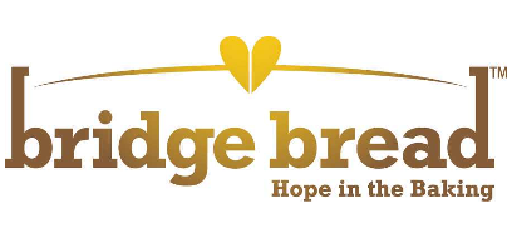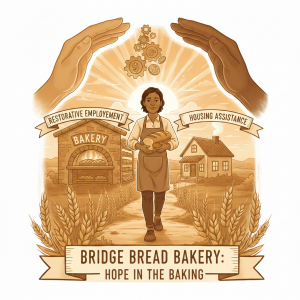Short Answer: Because they are survivors.
Unhoused people learn ‘street-smart’ survival strategies. While these strategies are necessary for surviving on the streets, they often directly clash with the requirements of a formal work environment. The mindsets and behaviors that promote self-preservation in a precarious, unpredictable, and often dangerous street culture can become significant obstacles to employment, which demands predictability, teamwork, and trust.
1.“Trust No One” & The Need for Collaboration
The deep-seated mistrust essential for survival on the streets—protecting against theft, violence, and exploitation—is a major obstacle in the workplace. Jobs require collaboration, teamwork, and the ability to build trust with supervisors, coworkers, and clients. An individual operating on a “trust no one” principle may be unable to take direction, share information, or feel safe in a professional setting, which can lead to friction, isolation, and a high risk of being terminated.
2.“There Are No Rules” & The Need for Structure
A chaotic, rule-less environment demands flexibility and opportunism. This is a survival skill on the street, where there is no schedule, no clear chain of command, and no safety net. However, the formal workplace is built on a foundation of rules, punctuality, and clear expectations. An individual accustomed to operating without rules may struggle with:
- Time management: Showing up on time and adhering to a fixed schedule.
- Following instructions: Respecting the authority of a manager or supervisor.
- Workplace ethics: Understanding and adhering to company policies regarding conduct, professionalism, and confidentiality.
3. “Take as Much Advantage of Every Opportunity You Can” & Professional Etiquette
On the street, “taking advantage” is a literal survival mechanism, often involving bending social norms to secure resources like food or shelter. In a work environment, this mindset can be perceived as unprofessional or unethical. It can manifest as hoarding resources, taking shortcuts, or engaging in opportunistic behavior that undermines team morale and trust. Employers require employees who are reliable, consistent, and who will work for the company’s benefit, not just their own immediate gain.
4. “No One Can Tell Me What to Do” & The Need for Authority
This rebellious, self-reliant attitude is a protective barrier against harm and exploitation by others. It is a necessary skill for maintaining independence in an environment where outside authority figures may not have a person’s best interests at heart. However, it is fundamentally incompatible with the employer-employee relationship, which is based on a structured hierarchy and the need to follow a supervisor’s instructions. A person who refuses to take direction or work within a team structure will find it nearly impossible to maintain a job.
5. “Don’t Go to Sleep with Money in Your Pocket” & Financial Management
This strategy highlights the constant threat of theft and the instability of life on the streets. For many, any money earned is immediately spent on a motel room, food, or other immediate needs, as saving is not a safe or practical option. This survival instinct directly conflicts with the foundational pillars of financial stability in mainstream society: saving, budgeting, and delayed gratification. This can make it difficult to manage a paycheck, pay bills, or save money to secure long-term housing, trapping them in a cycle where they earn money but cannot escape homelessness.
How Bridge Bread Bakery helps the Bakers overcome the obstacles
Bridge Bread Bakery employs a “restorative employment” model designed to directly address the obstacles unhoused individuals face in rejoining mainstream society. Rather than just offering a job, the program provides a supportive and flexible environment that helps people unlearn survival strategies and develop the skills needed for a stable, productive life.
- Countering “Trust No One”
- Supportive Work Environment: Bridge Bread provides a safe and supportive work environment where bakers are treated with dignity and respect. The structure is built on trust, and communication is clear and direct.
- Peer Support: Working alongside others who have similar lived experiences helps build a sense of community and shared purpose, fostering a sense of trust and belonging that may have been lost on the streets.
- Mentorship: The program likely includes mentors and provides Advocates who help employees navigate personal and professional challenges. This consistent, reliable support demonstrates that some people can, in fact, be trusted.
2. and 3. Countering “There Are No Rules” & “No One Can Tell Me What to Do”
- Gradual Introduction to Structure: The program provides a structured routine with clear expectations for punctuality and performance. However, this is done in a compassionate and flexible way, understanding that employees may have other challenges to manage, such as housing searches or medical appointments.
- Clear Communication: The work environment has clear communication and a defined chain of command, which re-introduces the concept of rules and authority in a non-punitive way. The focus is on teaching the skills needed for long-term success rather than simply enforcing compliance.
- Focus on Dignity: The program’s core value is to restore dignity and self-worth. By being treated as valuable, contributing members of a team, employees can begin to see the purpose of adhering to rules and working within a structure.
4. and 5. Countering “Take as Much Advantage…” & “Don’t Go to Sleep with Money…”
- Financial Assistance and Literacy: A crucial part of Bridge Bread’s model is direct financial support for housing. This includes assistance with move-in costs and ongoing rental assistance, which is a powerful incentive to save and manage money. It removes the immediate survival pressure of having to spend every dollar immediately to avoid theft or to secure a place for the night.
- Fair Wages: The bakery pays a fair, living wage. This gives employees a tangible sense of their own value and provides them with the financial means to save and build a future.
- Meaningful Work: The act of baking, creating a tangible product that is valued by the community, helps restore a sense of purpose and pride. The money earned is not just for survival; it’s the result of their own hard work and skill. This fosters a shift in mindset from opportunistic consumption to productive contribution.
Summary: By combining employment with “wraparound services” like case management and housing support, Bridge Bread creates a comprehensive pathway to self-sufficiency. It doesn’t just offer a job; it offers a controlled and supportive environment where the survival instincts of the street can be safely replaced by the cooperative, structured, and goal-oriented behaviors needed to rejoin mainstream society.

